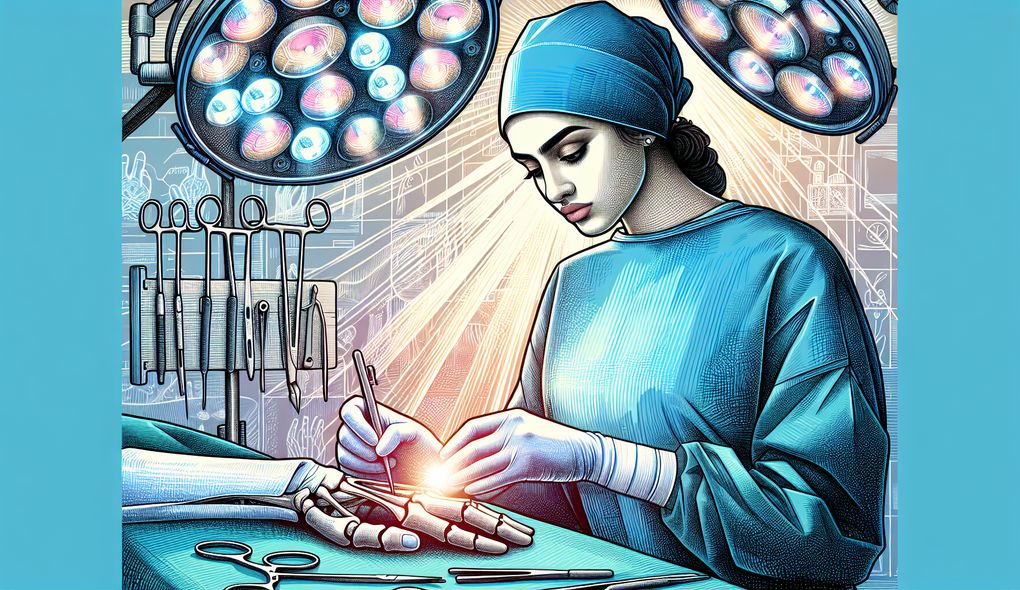Describe a time when you had to adapt your surgical approach to a unique or complex hand condition.
INTERMEDIATE LEVEL

Sample answer to the question:
I had a patient who had a rare hand condition called Dupuytren's contracture. The patient's fingers were severely bent and unable to straighten. During the initial evaluation, I determined that the traditional surgical approach might not be suitable due to the complexity of the case. I consulted with a team of hand specialists and we devised a unique surgical plan that involved a combination of traditional surgery and minimally invasive techniques. This approach allowed us to effectively straighten the patient's fingers and restore their hand function. The patient had a successful surgery and was able to regain full range of motion in their hand.
Here is a more solid answer:
In my experience as a Hand Surgeon, I encountered a patient with a unique hand condition known as Dupuytren's contracture. The patient presented with severe contracture of the fingers, making it impossible for them to straighten their hand. During the initial evaluation, I thoroughly assessed the extent of the contracture and conducted additional diagnostic tests to determine the best course of action. Recognizing the complexity of the case, I collaborated with a multidisciplinary team consisting of occupational therapists and hand specialists to develop a comprehensive treatment plan. We decided to employ a combination of traditional surgical techniques and minimally invasive procedures to address the deformity effectively. This approach involved meticulous precision and attention to detail to ensure optimal outcomes. Throughout the surgery, I employed my strong surgical skills to carefully release the contracted tissue and restore the patient's hand function. The procedure was successful, and the patient experienced a significant improvement in their hand mobility and pain relief. To further enhance my skills and stay up-to-date with recent advancements, I regularly attend conferences and participate in continuous learning opportunities in the field of hand surgery.
Why is this a more solid answer?
The solid answer expands on the basic answer by providing specific details about the surgical skills, diagnostic abilities, collaboration with a multidisciplinary team, and commitment to continuous learning. It demonstrates the candidate's expertise in hand surgery and their dedication to staying updated in the field. However, it can be further improved by highlighting their communication skills and the ability to work collaboratively with patients and their families.
An example of a exceptional answer:
Let me share a memorable experience where I had to adapt my surgical approach to a unique and complex hand condition. One of my patients presented with a rare case of Parry-Romberg Syndrome, a progressive disorder that affects the skin, connective tissues, and underlying bone structure on one side of the face and body. This condition had caused severe atrophy and deformity in the patient's hand, leading to significant functional impairment. As a Hand Surgeon, I understood the importance of tailoring the treatment plan to address not only the anatomical challenges but also the psychological impact on the patient's quality of life. To create a comprehensive approach, I worked closely with a multidisciplinary team and utilized my excellent diagnostic abilities to assess the extent of the deformity and evaluate the patient's overall condition. We determined that a combination of reconstructive surgery, microvascular techniques, and intensive rehabilitation would be necessary to restore hand function and improve the patient's well-being. Throughout the intricate surgical procedure, I meticulously reconstructed the patient's hand using grafts from the unaffected areas of their body, ensuring both aesthetic and functional restoration. Additionally, I collaborated with occupational therapists to develop a customized rehabilitation plan aimed at maximizing the patient's recovery. By implementing this holistic approach, the patient achieved remarkable results, experiencing a significant improvement in hand function and regaining their confidence. This case taught me the importance of adaptability, empathy, and continuous learning in overcoming unique challenges in hand surgery.
Why is this an exceptional answer?
The exceptional answer goes above and beyond by describing a more complex and rare hand condition, Parry-Romberg Syndrome, which showcases the candidate's outstanding diagnostic abilities and adaptability. The answer also emphasizes the candidate's empathy and dedication to improving the patient's overall quality of life. By highlighting the collaboration with a multidisciplinary team and the utilization of microvascular techniques, the answer demonstrates the candidate's strong surgical skills and ability to work with other professionals. It further emphasizes the candidate's commitment to continuous learning. However, the answer could be further improved by incorporating specific examples of strong communication skills and interactions with patients and their families.
How to prepare for this question:
- Reflect on past cases involving unique or complex hand conditions and the surgical approaches you took to handle them.
- Review the latest advancements and research in the field of hand surgery, particularly regarding complex conditions.
- Consider how you effectively collaborate with a multidisciplinary team, such as occupational therapists or hand specialists, to develop comprehensive treatment plans.
- Think about instances where you have effectively communicated with patients and their families, explaining complex procedures and postoperative care.
- Highlight your commitment to continuous learning and professional development in the field of hand surgery by mentioning conferences attended or additional certifications obtained.
What are interviewers evaluating with this question?
- Strong surgical skills
- Excellent diagnostic abilities
- Ability to work collaboratively
- Strong communication skills
- Commitment to continuous learning

